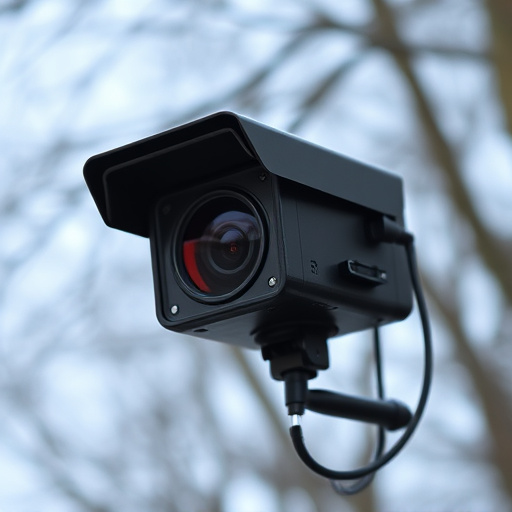In many regions, strict laws protect tenants' privacy regarding hidden security cameras with audio in rental properties. Landlords must obtain consent and be aware of these regulations to avoid legal issues. Tenants have rights, especially in areas like bedrooms and bathrooms, where privacy is crucial. Hidden security cameras offer landlords discrete monitoring but must balance security needs with tenant trust and privacy to maintain a fair relationship. Tenants can protect their spaces by conducting regular inspections and using technology to identify secret surveillance equipment, along with installing physical barriers and advanced security features.
In today’s digital era, understanding hidden security cameras with audio capabilities is crucial for both tenants and landlords. While legal limits and tenant rights vary by region, it’s essential to be aware of common discreet placement spots for security cameras. This article delves into the ethical considerations and privacy concerns surrounding hidden surveillance devices, offering insights on detecting and preventing unauthorized use. Additionally, we explore audio surveillance techniques and their implications, providing a comprehensive guide for navigating this delicate balance in rental properties.
- Understanding Legal Limits and Tenant Rights
- Common Discreet Placement for Security Cameras
- Audio Surveillance: What You Need to Know
- Ethical Considerations and Privacy Concerns
- Detecting and Preventing Hidden Cameras in Rentals
Understanding Legal Limits and Tenant Rights
In many jurisdictions, there are strict laws regarding privacy and surveillance in rental properties to protect tenant rights. Landlords must be aware that installing hidden security cameras with audio capabilities without proper notice can lead to serious legal consequences. It’s crucial to understand the specific regulations in your area, as they often dictate what types of surveillance equipment are permissible and how they should be used.
Tenants also have certain rights when it comes to privacy in their rented spaces. They should be informed about any existing or planned security measures and given clear consent for their installation. Landlords must ensure that surveillance does not infringe on tenants’ personal privacy, especially in areas typically considered private, such as bedrooms or bathrooms. Being transparent and respecting tenant rights is essential to maintaining a fair and legal relationship between landlords and tenants.
Common Discreet Placement for Security Cameras
Security cameras have evolved beyond their visible, bulky counterparts. Today, hidden security cameras with audio capabilities offer landlords and property managers a discrete way to monitor rental properties. These innovative devices are often placed in seemingly innocuous locations, taking advantage of everyday objects to maintain an air of normalcy while capturing vital footage and audio.
Common spots for these covert surveillance systems include light switches, power outlets, smoke detectors, and even faux decor items like fake plants or candles. Their design is tailored to blend seamlessly into the environment, making them nearly invisible to occupants. With audio capabilities, these hidden cameras can capture not just visual evidence but also crucial conversations, providing a comprehensive security solution for landlords aiming to maintain property integrity and tenant safety.
Audio Surveillance: What You Need to Know
In today’s digital era, hidden security cameras with audio capabilities have become increasingly sophisticated tools for property owners looking to ensure their rental spaces are safe and secure. These advanced devices can be discreetly installed in various locations throughout a property, offering a comprehensive surveillance solution. From wall-mounted cameras with built-in microphones to hidden listening devices, the technology allows for continuous monitoring of activities, capturing both visual and audio evidence.
Audio surveillance is particularly valuable as it provides context to what’s happening in real-time. It enables landlords or property managers to detect potential issues like unauthorized access, suspicious behavior, or even tenant disputes by picking up on conversations or sounds. However, it’s essential to be aware of local laws regarding hidden microphones and audio recording to ensure compliance and respect for tenants’ privacy.
Ethical Considerations and Privacy Concerns
The installation of hidden security cameras with audio in rental properties raises significant ethical considerations and privacy concerns. While landlords have a legitimate interest in maintaining security and preventing damage, tenants have a reasonable expectation of privacy in their homes. Unbeknownst surveillance can create a sense of distrust and unease among tenants, potentially damaging the landlord-tenant relationship.
Moreover, hidden cameras with audio capabilities can infringe upon personal conversations and private moments, capturing sensitive information that should be protected. This raises legal questions regarding the admissibility of evidence obtained through such means and the potential for misuse or unauthorized access to recorded data. Balancing security needs with respect for privacy is essential to ensure fair and ethical practices in rental property surveillance.
Detecting and Preventing Hidden Cameras in Rentals
Detecting hidden security cameras, especially those with audio capabilities, in rental properties is a growing concern for tenants. Landlords or previous occupants may install these devices to monitor spaces discreetly, violating tenant privacy. Tenants should be proactive in ensuring their space remains secure by conducting regular visual inspections and using technology to detect hidden cameras. Simple tools like infrared cameras and radio frequency (RF) detectors can help identify covert surveillance equipment.
Preventive measures are key; tenants can install physical barriers like privacy films on windows and doors, or opt for smart locks that provide advanced security features. Regularly updating security systems and keeping software up-to-date is also essential. By taking these proactive steps, tenants can better protect their privacy and deter the installation of hidden security cameras with audio in their rental properties.
While hidden security cameras can provide peace of mind for property owners, it’s crucial to navigate this technology within legal boundaries while respecting tenant privacy. Understanding both the discreet placement options and potential ethical pitfalls is essential. Regular maintenance checks and open communication with tenants regarding surveillance systems are key to maintaining a harmonious rental environment. Remember, transparency and compliance with local laws are paramount when employing hidden security measures like audio surveillance to ensure everyone’s rights remain protected.
